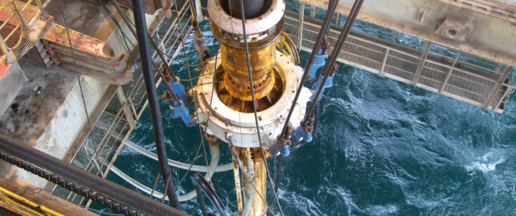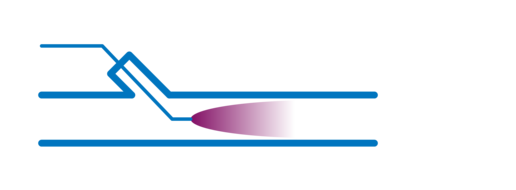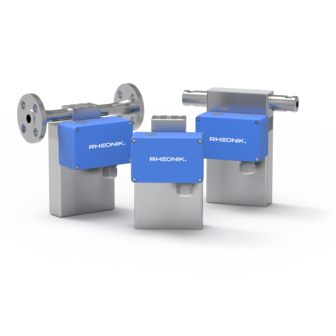Chemical Injection Metering

Rheonik – the partner for your oil & gas applications
In offshore fields, deep water developments are producing high-pressure, high-temperature (HPHT) wells with standard operating conditions that are pushing 15,000 psi (1034 bar) and 360°F (182 °C). In addition, sub sea systems are creating exceptionally long pipe runs from well to gathering points and high pressure operation is essential to overcome friction losses within the pipelines. Some well heads can be as much as 60 miles (100 km) from the platform.
Like their lower pressure counterparts, HPHT wells are highly susceptible to a wide variety of conditions that can effect production rates and equipment reliability and require continuous injection of chemicals to prevent conditions such as hydrate formation, asphaltine/wax build up, line corrosion and scaling. Left unchecked, failures will occur and these can be expensive in terms of both repair/resolution and lost production.
Chemical injection systems (skids) are commonly installed in production facilities in the oil and gas industry. They are used to deliver a customized cocktail of chemicals to prevent and mitigate a wide range of downhole problems that might negatively affect production flow from wells. Production chemicals are expensive and can account for up to 30 % of the day to day running cost of a production platform. Metering is a vital component of chemical injection systems as it is important to monitor and deliver the right dosage at the lowest possible cost.
Metering for offshore chemical injection systems has traditionally been provided by mechanical gear meters because of high pressure rating requirements. However, the tight mechanical tolerances within gear meters cause seizure when particulate is present in the flowing chemical stream, making them a highly maintenance intensive item. Furthermore, internal wear over time creates measurement inaccuracy, even more so with low viscosity materials as they will easily pass through the meter where it is worn and not be properly registered.
Given the high cost of chemical usage, there are great advantages to chemical injection system metering that is low maintenance and has not moving parts to wear. Rheonik Coriolis mass flow meters are ideal for chemical injection applications and are trusted in installations around the world. Rheonik meters offer the right balance between capital investment (CAPEX) and operating costs (OPEX).
Rheonik Chemical Injection in detail
Rheonik Coriolis Flow Meters are the smart choice for Chemical Injection Metering. They are:
- Cost effective
- Space efficient
- High Pressure Rated (24,969 psi / 1722 bar)
- Low Maintenance - no moving parts
- Resilient to pump pulsations
- Useable in hazardous areas
- Supplied with built-in detailed diagnostic capabilities

Production Chemical Injection
Using Rheonik Coriolis flow meters in high pressure production chemical injection systems helps guarantee flow assurance requirements are met in pipeline and process equipment to optimize processes in production operations. Flow assurance chemicals measured in Rheonik meters include wax inhibitors, pour-point depressants, asphaltene inhibitors, and scale inhibitors. In addition to flow assurance, production injection systems also deliver chemicals used to protect and prolong the lifetime of pipelines and associated equipment by reducing/removing undesirable substances that can create failure modes. Rheonik flow meters are fitted to accurately measure the dosage rates of chemicals such as corrosion inhibitors, biocides, demulsifiers, drag reducing agents and foam inhibitors.


Produced Water Treatment Chemical Injection
Crude oil and natural gas when exracted form the ground is accompanied by water. The Water/oil and water/gas ratio seen from wells gradually increases over the life of the well. The implementation of modern secondary and tertiary recovery processes has also increased water content on recovered fluids. Chemical injection systems provide a convenient solution for adding chemicals like biocides, antifoam agents, deoilers, demulsifiers, nitrate inhibitors, and (sodium) hypochlorites to treat produced water prior to reinjection into a reservoir, and Rheonik flowmeters are used in those systems to accurately monitor chemical addition rates on the high pressure side of the injection pumps, saving wear and tear on what can be expensive and critical components in the system.
Hydrate Control
Gas Hydrates are crystalline structures that can form during natural gas extraction. Hydrates attach to the internal surfaces of pipelines and inline equipment, reducing (and eventually blocking) the effective cross sectional area in flow lines and gas handling equipment. Typical chemicals used to control Hydrate formation are methanol, MEG and LDHI / KHI. High pressure Rheonik meters are available to measure hydrate inhibitors from drip feed rates to full flow rates in 2” lines.
Rheonik Coriolis features:
- The only Coriolis meter with pressure ratings up to 24,969 psi (1722 bar)
- Low flow measurement capabilities with high accuracy and wide turndown
- Corrosion resistant wetted materials
- Exceptional durability in harsh environments
- Wide variety of process connections
Rheonik flow meters
- reduce downtime
- increase flow assurance
- Reduce chemical costs
- Help maximize production rates

